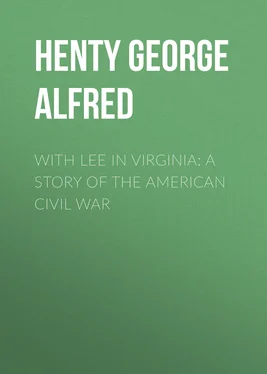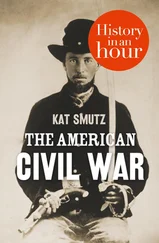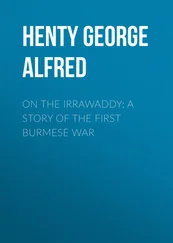Vincent gazed with admiration at the young leader, whose name was soon to be celebrated throughout America and Europe. The young Virginian—for he was not yet twenty-eight years old—was the beau ideal of a cavalry officer. He was singularly handsome, and possessed great personal strength and a constitution which enabled him to bear all hardships. He possessed unfailing good spirits, and had a joke and laugh for all he met; and while on the march at the head of his regiment he was always ready to lift up his voice and lead the songs with which the men made the woods resound.
He seemed to live in his saddle, and was present at all hours of the night and day along the line he guarded seeing that the men were watchful and on the alert, instructing the outposts in their duty, and infusing his own spirit and vigilance among them. He had been educated at West Point, and had seen much service with the cavalry against the Indians in the West. Such was the man who was to become the most famous cavalry leader of his time. So far he had not come in contact with the enemy, and his duties were confined to obtaining information regarding their strength and intentions, to watching every road by which they could advance, and to seeing that none passed north to carry information to the enemy as to the Confederate strength and positions, for even in the Shenandoah Valley there were some whose sympathies were with the Federals.
These were principally Northern men settled as traders in the towns, and it was important to prevent them from sending any news to the enemy. So well did Stuart's cavalry perform this service, and so general was the hostility of the population against the North, that throughout the whole of the war in Virginia it was very seldom that the Northern generals could obtain any trustworthy information as to the movements and strength of the Confederates, while the latter were perfectly informed of every detail connected with the intentions of the invaders.
The next morning Ashley's troop took up their share of the work at the front. They were broken up into parties of ten, each of which was stationed at a village near the river, five men being on duty night and day. As it happened that none of the other men in his squad had a servant at the front, Vincent was able without difficulty to have Dan assigned to his party. A house in the village was placed at their disposal, and here the five off duty slept and took their meals while the others were in the saddle. Dan was quite in his element, and turned out an excellent cook, and was soon a general favorite among the mess.
The next fortnight passed by without adventure. Hard as the work was, Vincent enjoyed it thoroughly. When on duty by day he was constantly on the move, riding through the forest, following country lanes, questioning every one he came across; and as the men always worked in pairs, there was no feeling of loneliness. Sometimes Ashley would draw together a score of troopers, and crossing the river in a ferryboat, would ride twenty miles north, and, dashing into quiet villages, astonish the inhabitants by the sight of the Confederate uniform. Then the villagers would be questioned as to the news that had reached them of the movement of the troops; the post office would be seized and the letters broken open; any useful information contained in them being noted. But in general questions were readily answered; for a considerable portion of the people of Maryland were strongly in favor of the South, and were only prevented from joining it by the strong force that held possession of Baltimore, and by the constant movement of Federal armies through the State. Vincent was often employed in carrying despatches from Major Ashley to Stuart, being selected for that duty as being the best mounted man in the troop. The direction was always a vague one. "Take this letter to Colonel Stuart, wherever he may be," and however early he started, Vincent thought himself fortunate if he carried out his mission before sunset; for Stuart's front covered over fifty miles of ground, and there was no saying where he might be. Sometimes after riding thirty or forty miles, and getting occasional news that Stuart had passed through ahead of him, he would learn from some outpost that the colonel had been there but ten minutes before, and had ridden off before he came, and then Vincent had to turn his horse and gallop back again, seldom succeeding in overtaking his active commander until the latter had halted for his supper at one or other of the villages where his men were stationed. Sometimes by good luck he came upon him earlier, and then, after reading the despatch, Stuart would, if he were riding in the direction where Ashley's command lay, bid him ride on with him, and would chat with him on terms of friendly intimacy about people they both knew at Richmond, or as to the details of his work, and sometimes they would sit down together under the shade of some trees, take out the contents of their haversacks, and share their dinners.
"This is the second time I have had the best of this," the colonel laughed one day; "my beef is as hard as leather, and this cold chicken of yours is as plump and tender as one could wish to eat."
Конец ознакомительного фрагмента.
Текст предоставлен ООО «ЛитРес».
Прочитайте эту книгу целиком, на ЛитРес.
Безопасно оплатить книгу можно банковской картой Visa, MasterCard, Maestro, со счета мобильного телефона, с платежного терминала, в салоне МТС или Связной, через PayPal, WebMoney, Яндекс.Деньги, QIWI Кошелек, бонусными картами или другим удобным Вам способом.












